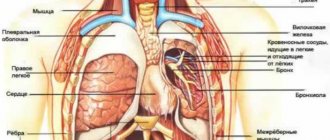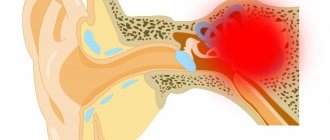Bitterness in the mouth is a common symptom of various diseases of the digestive tract. It can be observed only occasionally after drinking alcohol or fried and fatty foods, or it can appear constantly - in this case it is necessary to undergo a full examination and determine the cause of the pathology. What can cause bitterness in the mouth, and what additional symptoms can it be accompanied by?
The most common causes of bitterness in the mouth
The cause of bitterness in the mouth is the ingress of large amounts of bile.
The main reason for the appearance of a bitter taste in the mouth is the entry of a large amount of bile into the gastrointestinal tract.
This is a secretion that is produced by the liver and is used when digesting food; normally, bile flows through the bile ducts into the duodenum.
Some foods, such as pine nuts, and medications have a choleretic effect, so they promote the production of increased amounts of bile. If it penetrates the esophagus and stomach, there is a feeling of bitterness in the mouth.
Bitterness is a sign of trouble in the digestive system; most often it appears after eating fatty, fried and other hard-to-digest foods. Normally, it should not enter the esophagus; digestive disorders occur for several common reasons:
- Digestive disorders. Usually, bitterness in the mouth is associated with stagnation of bile, in this case it is accompanied by the appearance of a yellow coating on the tongue, a metallic taste, and the urine becomes dark. An additional sign of liver dysfunction is yellowness of the skin.
- Gastroesophageal reflux disease is a disorder of the stomach in which its contents begin to leak into the esophagus. The disease is accompanied by heartburn, nausea, belching after eating, and chest pain.
- Infestation with parasites. Parasitic infestations lead to numerous disorders of the digestive tract: intestinal function is disrupted, and signs of vitamin deficiency often appear. If a parasite infestation is detected, the doctor will prescribe special anthelmintics.
- Biliary dyskinesia caused by hormonal disorders. Disruption of the thyroid gland provokes spasm of the biliary tract, resulting in a feeling of bitterness in the mouth.
- Another hormonal disorder that can provoke this unpleasant symptom is diabetes.
- A short-term feeling of bitterness in the mouth can occur after taking antibiotics due to increased load on the liver; sometimes this feeling occurs after consuming pine nuts, medications, and often occurs during pregnancy.
Plaque in the mouth and bitterness as signs of disease
Bitterness in the mouth can be a sign of gastritis and peptic ulcers.
During the examination at the appointment, the doctor will definitely ask the patient to show his tongue: based on plaque, if it is combined with a feeling of bitterness in the mouth and abdominal pain, the doctor will receive more accurate information about the existing pathology.
For various diseases of the digestive system, the following clinical picture may be observed:
- A variation of the norm is the appearance of white plaque, which can be easily removed with a toothbrush. It usually indicates an excess amount of sugary foods in the diet and an increased amount of bacteria in the mouth. However, he speaks of the absence of serious pathologies in the digestive process.
- A feeling of bitterness combined with the appearance of a dense white-gray plaque is a sign of gastritis and gastric ulcer; such plaque often accompanies heartburn. A characteristic sign is the absence of plaque on the tip of the tongue.
- If a dense white coating accumulates at the base of the tongue, it usually indicates chronic gastritis. It is often accompanied by bloating, constant heartburn, and a bitter taste in the mouth.
- If there is a yellow coating with a greenish tint, this is clear evidence of liver pathology and gallbladder function. This is an alarming sign and the patient needs immediate medical attention.
A coating on the tongue also often appears in smokers; it also occurs along with an unpleasant taste in the mouth after drinking alcoholic beverages.
If unpleasant sensations occur systematically, it is necessary to consult a therapist for examination: the doctor will refer the patient to a gastroenterologist and endocrinologist, after which appropriate treatment will be selected.
Treatment
Treatment is prescribed based on diagnostic results, taking into account the causes of bitterness in the mouth.
Conservative therapy
Photo: freepik.com
A doctor may prescribe the following medications:
- Choleretics and cholekinetics. These are choleretic drugs that are prescribed for cholangitis and cholecystitis.
- Enzymes that stimulate digestion. They can be used not only for diseases of the digestive organs, but also for liver damage (in combination with hepatoprotectors).
- Antispasmodics. They are prescribed if bitterness in the mouth appears along with abdominal pain and is associated with gastritis or other diseases of the digestive system. Antispasmodic drugs relieve pain and relax the smooth muscles of the stomach.
If the appearance of bitterness is associated with viral hepatitis, the doctor will prescribe complex therapy for the underlying disease. In case of parasitic infection, anthelmintic drugs are prescribed. Additionally, it is recommended to follow a diet, frequent, small meals and control the drinking regime.
Surgery
Surgical treatment is carried out for gallstone disease to remove and remove stones - calculi. If the gallstones are small, the ESWL (extracorporeal shock wave lithotripsy) technique is used, crushing the stones with a shock wave. In more severe cases, open or laparoscopic cholecystectomy is prescribed. It is carried out if neither diet nor ultrasound methods improve the condition. A cholecystectomy involves removing the gallbladder.
Stones extracted from the gallbladder. Photo: Alena1919 / Depositphotos
Methods for treating bitterness in the mouth
To treat this disease, you can use freshly squeezed juices.
In all cases, treatment of bitterness in the mouth should begin with a visit to a specialist and a comprehensive examination.
This symptom indicates various pathologies in the body, so it is important to accurately determine the cause of the disorders so that the treatment is effective.
In almost all cases, the success of treatment largely depends on the efforts of the patient himself. First of all, you will need to adjust your diet: you will need to exclude any hard-to-digest food and alcoholic drinks from your diet, and you will need to follow a diet.
Compliance with the diet also requires stopping smoking and consuming any substances that can irritate the mucous membranes. In addition to the medications that the doctor will prescribe to treat the identified disease, it will be useful to use the following folk remedies:
- Constantly drinking plenty of fluids helps improve the functioning of the digestive system. You need to drink at least 2-2.5 liters of water per day; in addition, drinking rosehip or currant decoction is beneficial.
- Drinking freshly squeezed vegetable and fruit juices - carrot, orange, apple, etc.
- Natural juices help improve appetite, provoke salivation, and in addition, the body receives a sufficient amount of vitamins.
- Use of sedatives. Many digestive disorders occur against the background of a constant remedy, so the use of sedatives will be required. This is an infusion of valerian, motherwort decoctions, and also the use of sedative tea.
- It is also necessary to normalize the functioning of the intestines: for this it is necessary to consume sorbents, as well as foods rich in fiber to get rid of constipation.
It is important to remember that bitterness in the mouth is not an independent disease, but only one of the alarming signs that requires mandatory diagnosis and correction of the diet. Only with an integrated approach will treatment be successful and avoid possible complications.
Diagnostics
If you have bitterness in your mouth, you need to go to a gastroenterologist to find out the reasons. To diagnose gastrointestinal diseases, if any are suspected, gastroscopy is performed. This is an examination of the gastric mucosa, which is done with a probe with an optical device at the end. With the help of gastroscopy, you can not only detect inflammation, but also take the affected stomach tissue for later examination.
In some cases, the doctor prescribes an ultrasound examination for diagnosis. But an x-ray of the stomach is considered a more informative diagnostic method. It is also possible to conduct laboratory diagnostics and biochemical blood tests if the doctor discovers indications for these procedures.
What complications does bitterness in the mouth lead to?
Bitterness in the mouth may indicate serious inflammatory processes in the digestive tract.
If you ignore an alarming sign, you may soon encounter very unpleasant consequences of the development of pathology.
Bitterness in the mouth may indicate serious inflammatory processes in the digestive tract: cholecystitis, gastritis, pancreatitis, etc.
Lack of timely treatment leads to the fact that the disease becomes chronic, and it becomes much more difficult to cope with it.
A constant bitter taste leads to loss of appetite, which results in weight loss to the point of exhaustion. Eating habits change; over time, a person may almost completely lose the ability to taste food. All this, in combination with other symptoms of the disease, leads to the development of depression and a general deterioration in well-being.
Why does the bitter taste appear?
A bitter taste in the mouth appears due to the reflux of the contents of the duodenum into the stomach or esophagus and oral cavity.
This feeling is troubling not only because of gastrointestinal diseases. The reason may be the presence of an infection in the body, exposure to medications, insufficient oral hygiene, during pregnancy, due to a lack of vitamins, an excess of fried heavy foods, alcohol, and coffee drinks. Gum disease is accompanied by a feeling of taste in the mouth due to the growth of bacterial flora. With dentures and poor oral hygiene, bacteria accumulate, multiply, and a bitter taste appears in the mouth.
When taking chemotherapy drugs, antibiotics, or antihistamines, bitterness in the mouth can be a side effect.
Dysgeusia is a taste disorder in which taste perception is altered. Dysgeusia can occur during pregnancy, in smokers, in older people, and in mental illness.










